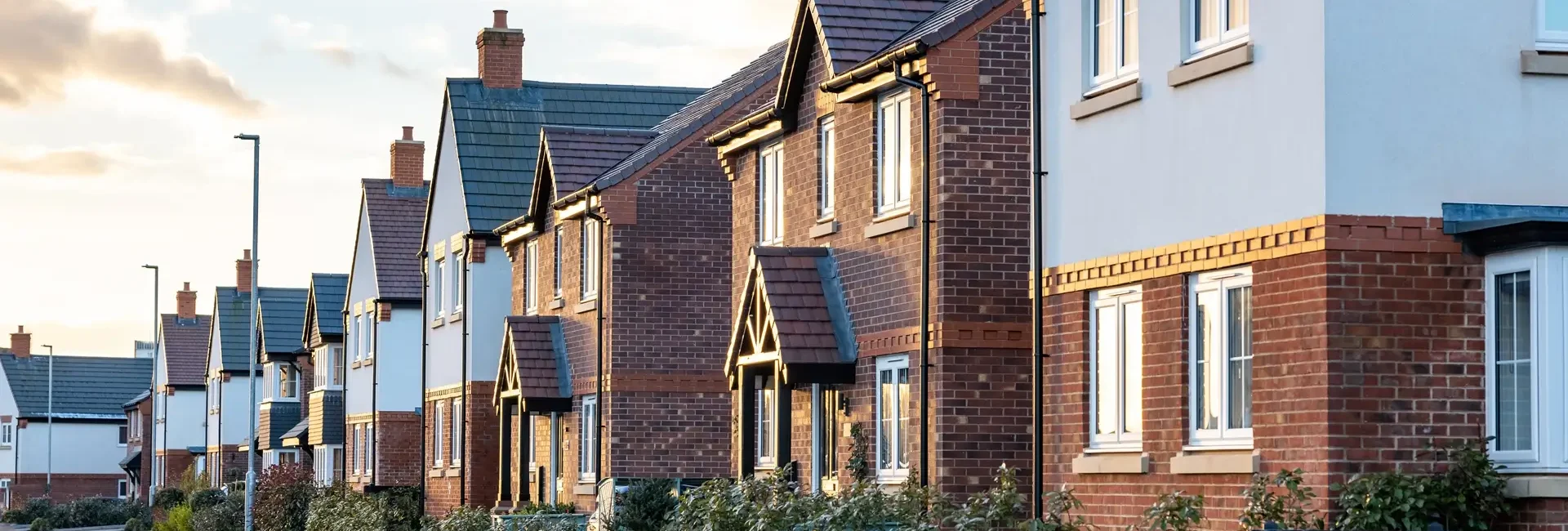What is Buy-to-Let Mortgage?
A Buy-To-Let Mortgage is designed specifically for individuals who want to purchase residential properties to rent them out to tenants. Unlike a standard residential mortgage, which is intended for owner-occupied properties, a buy-to-let mortgage is tailored to the needs and risks associated with investment properties.

Choosing the right mortgage for your specific circumstances is a pivotal decision that can significantly impact your financial future. With flexible mortgages, you often have options like changing your interest rates, customizing your repayment plan, and the flexibility to make extra payments or take breaks from payments when needed.
Buy-to-Let Mortgages Explained
Diving into real estate investment, primarily through rental properties, presents a compelling avenue for boosting income and fostering wealth. The buy-to-let mortgage is among the essential financial instruments in the property investor's toolbox. This thorough guide will explore the nuances of buy-to-let mortgages, mechanics, and factors aspiring landlords should consider.
1. Deposit Size Matters
Securing a buy-to-let mortgage often requires a larger deposit compared to residential mortgages. Lenders typically ask for a minimum of 25% to 40% of the property's value, influencing the interest rates and deals available to you.
2. Interest Rates and Deals
Interest rates on buy-to-let mortgages can vary. Exploring different mortgage deals is crucial to finding one that suits your investment goals and financial capabilities. A mortgage adviser can offer invaluable guidance in navigating these options and securing favourable rates.
3. Understanding Mortgage Terms
The mortgage term is pivotal in managing monthly payments and overall costs. Shorter terms mean higher monthly payments but less interest paid over time, while longer terms offer lower monthly payments but higher overall costs.
4. Rental Income and Potential
Lenders assess the property's potential rental income to determine the mortgage amount they're willing to lend. Demonstrating a solid potential for rental income can positively impact your mortgage application.
5. Regulation and Tax Implications
Buy to Let Mortgages are regulated by the Financial Conduct Authority (FCA). Additionally, considering income tax on rental earnings is crucial for understanding the profitability of your investment.
6. Selling the Property
Buy to Let Mortgages are regulated by the Financial Conduct Authority (FCA). Additionally, considering income tax on rental earnings is crucial for understanding the profitability of your investment.


Considerations for Prospective Landlords
Understanding Buy to Let (BTL) Mortgages involves recognizing factors affecting loan amounts, differentiating between personal and rental properties, and comprehending tax rules and risks, such as potential property vacancies.
Research the Market
Before investing in a rental property, assess the area by gauging demand, average rent prices, and potential vacancy rates. Understanding these factors is crucial for making an informed decision about your investment.
Financial Planning
Calculate anticipated expenses like mortgage payments, property maintenance, insurance, and potential void periods. Ensure your rental income sufficiently covers these costs to yield a reasonable return on investment.
Considerations for Prospective Landlords
Legal Responsibilities
If you’re a landlord, you have some important jobs. First, you must ensure the place is safe and healthy for your tenants. Also, taking care of their deposits and following the rules when asking someone to leave is crucial.
Property Management
Decide whether you’ll manage the property or hire a company. Property management involves handling tenant issues, maintenance, and property inspections.
Exit Strategy
Consider your long-term goals and exit strategy. Are you looking for rental income, capital appreciation, or a combination? Having a clear plan can guide your investment decisions.


Loan Amount Determination for Buy to Let Mortgages
Lenders assess the loan amount for a BTL Mortgage based on various factors. One primary consideration is the potential rental income the property can generate. Typically, lenders analyze the property’s rental yield to calculate how much they’re willing to lend. This rental income helps determine the affordability of the mortgage.
Additionally, the applicant’s financial situation, income, and credit history can influence the loan amount. Getting money from renting out a property is essential. Still, some lenders also want to ensure you have enough regular income to pay for the mortgage, especially if the property is empty or something unexpected happens.
Try Our Mortgage Calculator
Workout how much you could borrow and how much deposit you need for a mortgage.
How does the application process work?
Initial Enquiry
Tell us about your commercial finance requirements and specific needs. You can call us on 020 7036 6435. Alternatively, you can schedule a consultation or submit your enquiry online, and a member of our team will respond to you within 24 hours.
Documents
One of our qualified advisers will discuss your situation with you in more detail and advise of any additional information or documentation required to search the market thoroughly. Our advisors will research the market for potential rates.
Decision In Principle
Following their research, your adviser will present their recommendations tailored to your specific needs. This will include details of rates and any associated fees that may apply. Once ready to proceed, your adviser can request an agreement.
Application
When ready to proceed, your adviser will submit the full application. At this stage, the lender will review any documents you provided and get everything prepared for checking the property value and making decisions about the loan.
Offer
The formal finance offer will be issued once the lender is satisfied with the documentation provided and the business offers suitable security. Once approved, your advisor will discuss your needs and make any recommendations and arrangements.
Completion
When your solicitor has finalized the necessary legal matters, and all parties are ready, you can arrange your completion date. The solicitor will then make the arrangements required to request the funds. We'll ensure you get the best deal for your needs.
BOOK A CALL WITH A FLEXIBLE MORTGAGE ADVISOR
Flexible Mortgages present an appealing choice for homeowners looking for personalized options and financial adaptability when handling their mortgages. They bring a range of advantages like reduced interest expenses and adaptable payment structures, proving immensely valuable in different circumstances. Nevertheless, individuals should thoughtfully evaluate their financial objectives and willingness to take risks before deciding on a flexible mortgage, given the associated compromises and intricacies that might not align with everyone’s requirements.

